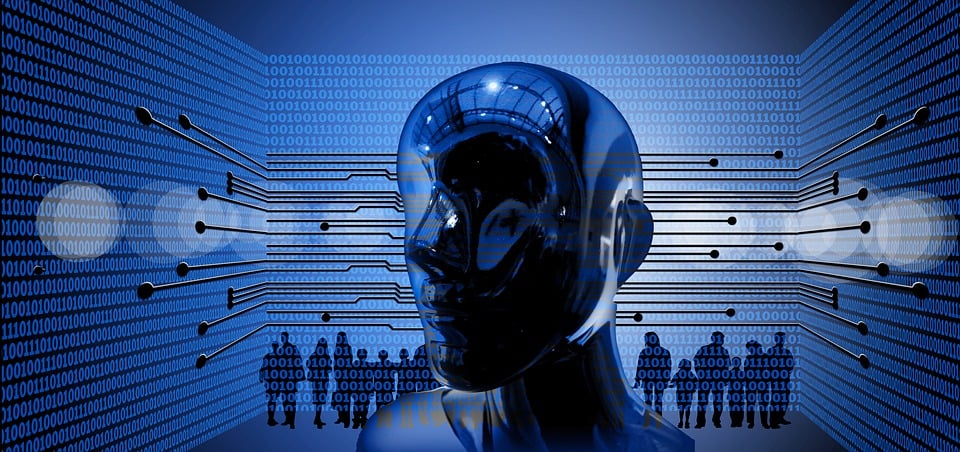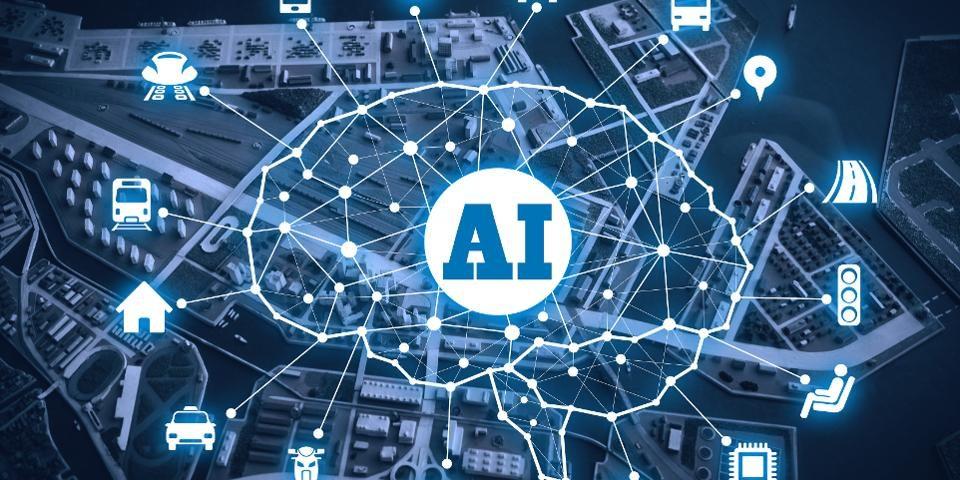4 min read
Right choice for your business - ERP or complete Digital Transformation?
Anurag : Oct 3, 2019 12:00:00 AM


If you are managing a business and a corporate and aiming to deliver the best value and output to your customers, then Digital Transformation is the ultimate Nirvana. As a businessman, you are almost ready to accept the challenges and outcomes for a better tomorrow. When it comes to digital transformation like AI (Artificial Intelligence), RPA (Robotics Process Automation), Predictive Analytics, Machine Learning, and lots more prove to be highly innovative technology. Common and usual biz applications like enterprise resource planning (ERP) systems do not generally support the same level of work and enthusiasm.
Yes ERP is capable of performing several tasks, and also the technology is advancing day by day, and this gives benefit to the business in getting digitized. Majorly from small to large enterprises need a digital transformation to succeed in the industry. The increasing value delivered to the customers and digital transformation goes hand in hand. Almost 89% of businesses have made a strong strategy for digital transformation. And 93% of financial services, 92% healthcare services, and 95% of services are digitally transformed.
Key objectives of Digital Transformation
Digital Transformation of the business is undoubtedly one of the biggest buzzwords in today’s world. Business leaders are looking for smarter strategies to transform their business to gain unparalleled benefits digitally. According to the latest reports of the Worldwide Semiannual Digital Transformation Spending Guide, the global spending on digital transformation will surely reach $1.97 trillion by the year 2022.
The primary objectives of digital transforming include:
- Improvement in the Customer Experience
- Increase in Operational Workflow And Agility
- Enhancement Of Workforce
- Better Work Culture
- Integration Of Digital Technology
How Digital Transformation differs from ERP implementation
Enterprise Resource Planning software(ERP) is a collection or suite of applications that can be customized to allow enterprises and businesses to manage their enormous processes.
However, due to some unfortunate disaster. Enterprises are becoming particular about the ERP implementation, to the core of the business operations. Some businesses consider ERP implementation as an essential concept for Digital Transformation. But both are different in various ways. Let us know the exact critical differences between the two:
Difference in technology
Core successful ERP companies such as Microsoft, SAP, and Oracle are depended on the technologies that enable the automation of back-office operations and functions. On the other hand, digital transformation is the one that makes extensive use of a variety of techniques. Also, you can say ERP uses a fusion of technologies that include ERP, Artificial Intelligence, Internet Of Things, BlockChain, Machine Learning, and Industry 4.0 that transform their existing or current business models.
ERP is a typical business application that integrates different parts of business operations. Such as accounting, product planning, bookkeeping, manufacturing, sales, financials, inventory management, marketing, and human resources within a single MVC platform or architecture. Companies can operate all the operations in one interface.
Difference in Business Process Management
ERP systems approach business operations and processes by increasing steps towards various business processes for increasing benefits. On the other hand, digital transformation approaches enterprise approach improvement with the help of “quantum leaps.”
Business operations are processed, such as customer onboarding, managing their complaints, managing insurance claims, etc. The difference lies in the approaches also. Moreover, ERP systems take an overall holistic approach, whereas, on the other hand, digital transformation requires a well-planned strategy.
Additionally, ERP systems aim at providing quality data and functions to deliver products and services more efficiently and effectively to the customers. On the other hand, digital transformation improves the products and services quality that can be delivered to the customers.
In a nutshell, ERP implementation is the automation of the existing business operations. In contrast, digital transformation is all about taking quantum leaps for improving business performance and value. Transforming businesses digitally involves business process customization, re-engineering, and optimization. Additionally, digital transformation is dependent upon fluctuating changes in the current business operations. These are used for developing new business models and strategies for active business.
Difference in Organizational Change Management
Though there are MNCs extensively adopting technologies like SAP HANA, Oracle Cloud ERP, or any other ERP implementation, will experience an organizational change. Organizational change management is related to the ERP implementation has an aim to train people on how to perform the same business processes and transactions in all the new system.
Definition of the Enterprise Resource Planning Organizational Change Management (ERP OCM), is a clear framework to regulate the result of new business processes along with the organizational changes in a business.
However, digital transformations are aiming to provide help to the workforce to change their job roles for supporting their new business models. Digital transformation makes extensive use of disruptive technology instead of automating the status quo. This is because while ERP systems give an overall improvement in the business, digital transformation aims at disrupting the current business model for enhancement. This drives to the provision of better products and services to clients.
In a nutshell, Organizational transition management in ERP systems is aiming at addressing the people side of change management in the businesses. It can also be defined as the strategies that can help stakeholders and employees migrate from current system to new system at once. On the other hand, digital transformation shifts the ongoing business operations with a disruptive technology mechanism.
While ERP implementation has a sole focus on achieving higher efficiency and effectiveness with a business’s current model, digital transformation disrupts or changes the current business model too.
Difference in providing business value and RoI
Recently a survey was conducted for some companies that had invested in the digital transformation process. This survey depicted that these companies spent in digital transformation procedure and gained annual revenue of almost $500 million. This shows that strategic planning for the digital transformation of the businesses was done effectively that helped those companies to increase their revenue and reduced operational costs.
ERP implementations can produce an excellent ROI(Return on investment) for enterprises within a few years with all business processes going well. On the other hand, digital transformation powerfully delivers an exponential increase the revenue and considerably reduces the operational costs. This ultimately results in enhancements in business value. Moreover, the ROI increase, customer loyalty, and satisfaction are improved along with the overall, improvement inefficiency, and other factors.
Difference in employee strategies
Enterprise Resource Planning systems concentrate on training their employees on the new systems. This training helps a company to solve organizational change management concerns. Digital transformation intends at employee acceptance strategies of the latest and updated systems. Businesses and corporations adopt the digital transformation process to improve performance. Moreover, they even make use of comprehensive business strategies to bring out changes in different methodologies.
ERP systems rarely invest in organizational change management strategies. This, as a result, leads to high failure rates in enterprises adopting ERP implementation, whereas digital transformation spends mostly on corporate change management strategies. This increases customer support significantly. Also, it increases the ROI rate and also helps companies to grow and expand fast.
ERP implementation / Digital Transformation - which one is better
In order to automate all the business operations, some businesses and corporates choose a single technology platform. The key solution is to improve the overall business operation and to work.
A right and planned digital strategy can go a long way in managing the business processes irrespective of which approach a business implements.
Need help with your implementations? Get in touch





